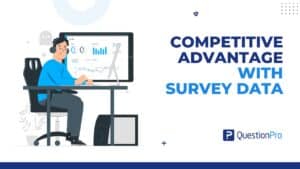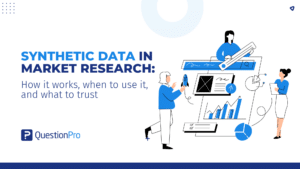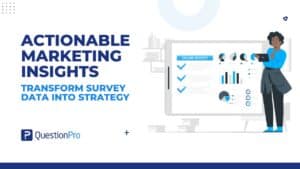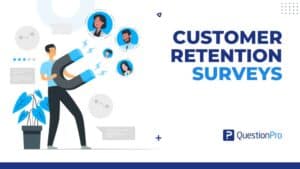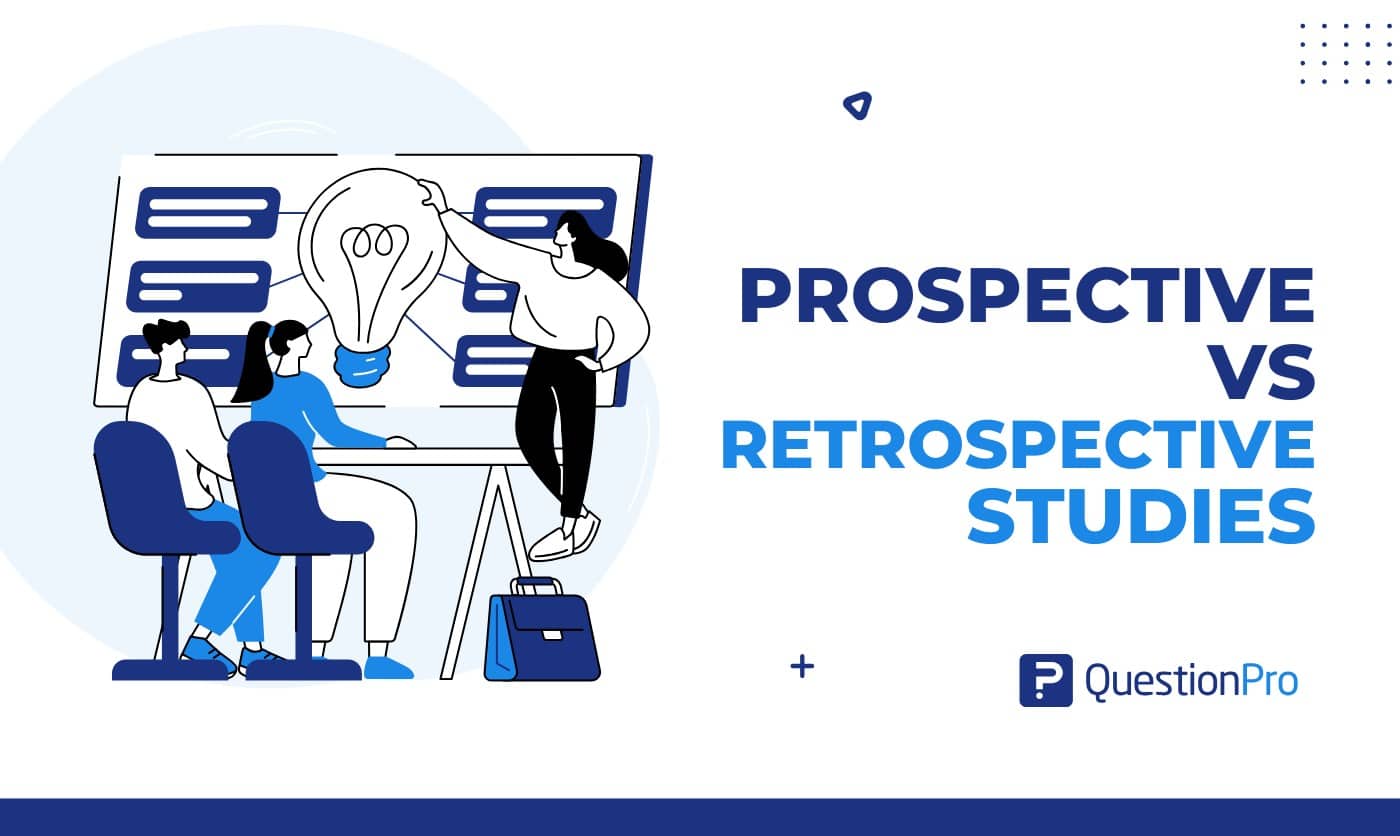
Understanding prospective vs retrospective studies is essential when conducting research. These two approaches are widely used in fields like clinical trials, social sciences, and epidemiology. Each method has its own strengths and is suited for specific types of research questions.
In this blog, we’ll explain these study types, how they differ, and when to use them to keep it simple and relatable.
What Are Prospective Studies vs Retrospective Studies?
Prospective studies are a type of research where researchers look forward in time to see how things unfold. They start with a group of people now and follow them over a period to observe what happens. The goal is to understand how certain factors or behaviors might influence future outcomes.
Imagine you want to do case-control studies on whether eating fruits daily can prevent heart disease. You gather a group of people today, ask about their fruit-eating habits, and then track their heart health for the next 10 years. You’re observing how their choices today affect their future.
Why Are Prospective Studies Useful?
- Fresh Data: Instead of relying on old records, researchers collect new information as events happen.
- Clear Cause and Effect: These studies are great for figuring out if one thing leads to another, like whether smoking increases the relative risk of lung disease.
- Control Over the Process: Since the study is planned ahead, researchers can minimize errors and stay organized.
Challenges to Keep in Mind
- Time-Consuming: Waiting for results can take years, sometimes even decades.
- Expensive: Monitoring people over a long time costs money.
- Dropouts: Some participants may lose interest or stop participating, which can affect the results.
When Are Prospective Studies a Good Idea?
Here’s When to Consider a Prospective Study:
1. To Study Long-Term Effects
If you’re curious about how a habit or treatment impacts people over the years, a prospective study is perfect. For example, researchers might want to see how regular exercise affects heart health over a decade.
2. When You Need Fresh Data
Prospective studies collect new, real-time information, which is more accurate than relying on old records. This is ideal for modern health studies, behavioral research, or testing new interventions.
3. To Understand Cause and Effect
When researchers want to answer questions like “Does X cause Y?” prospective studies are great. For example, they can determine if exposure to pollution increases the risk of asthma.
4. For Studying Rare or Delayed Outcomes
If the outcome takes time to appear (like certain diseases or behaviors), prospective studies provide a way to track changes over the years.
5. When There’s Sufficient Time and Resources
Prospective studies require long-term commitment, funding, and participant engagement. If these are available, the insights gained are often worth the investment.
What Are Retrospective Studies?
Retrospective studies are a type of research that looks backward in time to understand what has already happened. Instead of collecting new data, researchers analyze past records, data, or events to study outcomes and their possible causes.
Imagine you want to understand the link between smoking and lung cancer. Instead of tracking people over the years, you look at medical records of patients who already have lung cancer to see how many of them were smokers in the past.
Why Are Retrospective Studies Useful?
- Quick Results: Since the events have already happened, you can get answers faster.
- Affordable: You don’t need to monitor participants for years, saving time and money.
- Useful for Rare Events: They’re great for studying uncommon conditions because the data already exists.
Challenges to Keep in Mind
- Incomplete Data: Past records may be missing details or contain errors.
- Bias risk factors: Researchers can’t control how the data was collected, which might lead to skewed results.
- No Control Over Variables: Since the events have already occurred, it’s harder to isolate specific factors that influenced the outcomes.
When Are Retrospective Studies a Good Idea?
Retrospective studies are a great option when researchers need to analyze past events to answer specific questions. Since these studies rely on existing data, they’re often faster and more cost-effective than prospective studies. Here are some situations where retrospective studies are a good idea:
1. When You Need Quick Answers
If time is limited, retrospective studies can deliver results faster. Since the data already exists, there’s no need to wait years for rare outcomes to occur.
2. When Studying Rare Events or Diseases
Rare events are challenging to study prospectively because they don’t happen often. Retrospective studies let researchers analyze data from past cases to identify patterns.
3. When You Have Access to Reliable Data
If detailed and accurate records are available, retrospective studies can provide valuable insights without requiring new data collection.
4. When Resources Are Limited
Retrospective studies are less expensive than prospective ones because they don’t require long-term monitoring of participants.
5. When Exploring Trends or Associations
Retrospective studies are great for finding correlations between past exposures and current outcomes. While they can’t prove cause and effect, they provide strong clues.
Prospective vs Retrospective Studies
Here are the key differences between prospective studies and retrospective studies:
1. Timeline
- Prospective Studies: Focus on the future. Researchers track participants over time, starting today and following them as events unfold.
- Retrospective Studies: Look at the past. Researchers analyze existing data, such as medical records or surveys, to investigate events that have already occurred.
2. Data Collection
- Prospective Studies: Gather new data as the study progresses. Researchers collect real-time information about participants’ behaviors, conditions, or exposures.
- Retrospective Studies: Use existing data. Researchers rely on historical records or past data that have already been collected.
3. Study Design
- Prospective Studies: Researchers design the study with specific goals and track variables over a predetermined period. This allows more control over how data is collected and monitored.
- Retrospective Studies: Researchers examine data that already exists and often work with whatever records or datasets are available, which may limit their control over the study design.
4. Time and Cost
- Prospective Studies: Generally more time-consuming and expensive because researchers need to follow participants over an extended period.
- Retrospective Studies: These are usually quicker and less expensive since they rely on data that’s already been collected, requiring less effort in tracking participants.
5. Bias and Data Accuracy
- Prospective Studies Tend to have less bias because researchers control the data collection process, ensuring consistency and reliability.
- Retrospective Studies: They may be more prone to bias due to reliance on historical data, which can be incomplete or inaccurate. The quality of data may vary depending on how it was originally collected.
6. Establishing Cause and Effect
- Prospective Studies: Better for determining cause-and-effect relationships because researchers can observe how certain factors (like lifestyle or treatment) affect outcomes over time.
- Retrospective Studies: Primarily useful for identifying associations, not causation. They can show links between exposures and outcomes, but they can’t definitively prove one caused the other.
7. Examples of Use
- Prospective Studies: Often used in health studies to track the effects of lifestyle choices (e.g., diet, exercise) on long-term outcomes like heart disease or cancer.
- Retrospective Studies: Common in studying rare diseases or conditions where researchers analyze past medical histories to understand patterns or trends.
Choosing the Right Study
The choice between prospective and retrospective studies depends on the research question, available resources, and time constraints:
- Choose Perspective: When you want to study future outcomes or test interventions over time. An observational study is often prospective when researchers simply observe and record data without manipulating variables.
- Choose Retrospective: When you need quick answers or are studying rare events using available data. Cohort studies can also be retrospective when researchers look at past data to examine long-term effects on specific cohorts.
Conclusion
When researchers want to understand how certain factors affect outcomes, they use different study designs. Two common approaches are prospective vs retrospective studies. While both have their merits, they are quite different in how they work and what they can tell us.
QuestionPro offers tools that support both prospective and retrospective studies by simplifying data collection and analysis. For prospective studies, its survey tools can help track participants over time with real-time data collection.
For retrospective studies, QuestionPro’s advanced analytics and data management features allow researchers to analyze existing survey data and identify trends or correlations from past studies. Contact QuestionPro today for further information!




